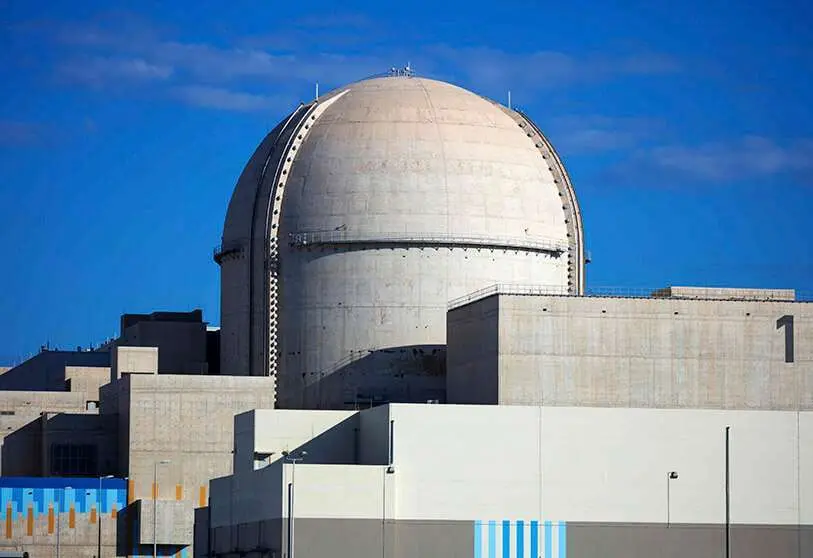Emirates' Barakah nuclear power plant to avoid more carbon emissions

The Barakah nuclear power plant in the United Arab Emirates said there will be fewer carbon emissions than initially expected. This announcement was made during Abu Dhabi Sustainability Week, where the importance of nuclear energy in combating climate change was demonstrated, as well as its promotion in the UAE and globally.
According to new information from the United Nations Economic Commission for Europe (UNECE), nuclear power is the energy source with the lowest life-cycle carbon emissions so far, meaning that it is one of the cleanest of all energy sources assessed.
It is also worth noting that the Emirates Nuclear Energy Corporation (ENEC) has ensured that all units at the Barakah plant will avoid 22.4 million tonnes of carbon emissions each year, which is 6% more than previously predicted.
"The Barakah plant is a sustainable powerhouse for the UAE; it leads the largest decarbonisation campaign of any industry here locally and in the wider Arab world today and spearheads the nation's commitment to tackling climate change. Since the start of commercial operations in 2021, Unit 1 has been the Arab world's largest single, completely carbon-free electricity generator. The UAE's decision to diversify its energy sources to include nuclear power is paying off today, as we work to make the largest contribution to the UAE's Net Zero by 2050 initiative," said ENEC Managing Director and CEO Mohamed Ibrahim al-Hammadi.

Furthermore, the 22.4 million tonnes avoided by the plant means 4.8 million passenger cars driven in the time period of one year, which will be a significant step against climate change, taking into account new data on vehicle emissions.
There are almost 3.5 million cars on the road in the UAE, which further reinforces the positive impact the Barakah plant is having on mitigating the UAE's carbon footprint by decarbonising its energy sector.
According to the Emirates Water and Electricity Company (EWEC), carbon emissions should decrease by 50% by 2025 with the nuclear plant fully operational, as well as the launch of additional solar power and desalinated water.
By the same year, Barakah is expected to produce more than 85% of Abu Dhabi's clean electricity.
It is also worth noting that the Barakah plant has become an international benchmark and subject of study for the development of a new nuclear power project adapted to international standards of quality, reliability and safety.

At full operation, the plant will produce 5.6 gigawatts of electricity with zero carbon emissions, a major step that demonstrates nuclear power's ability to produce electricity and, at the same time, contribute to countering climate change today.
For the next 60 years, the plant is expected to continue producing clean electricity 24 hours a day, every day of the week, contributing to the Net Zero by 2050 initiative proposed by the United Arab Emirates.
Finally, the Barakah plant, whose construction began in 2012 and has progressed tremendously since then, is currently one of the largest nuclear power plants worldwide, with four APR-1400 units.










